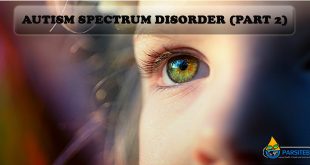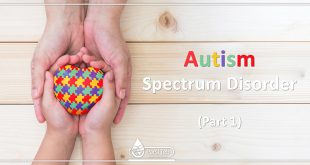 Dyslexia adversely affects many children and teenagers during their school years and, if it is not addressed, it will continue to affect them throughout adulthood too.
Dyslexia adversely affects many children and teenagers during their school years and, if it is not addressed, it will continue to affect them throughout adulthood too.
The stress associated with tests and exams may lead dyslexics to avoid further education and also some types of jobs. They are usually very bright individuals and their frustration may be worsened by ending up in a boring and intellectually unchallenging type of job.
Many dyslexic adults hold resentment and disappointment for not having achieved their potential in the workplace and in their personal lives. They may find that they get frustrated at themselves, or blame others for their unhappiness. They may experience bouts of anger and/or depression.
Nevertheless, there are many dyslexics who have overcome their difficulties and lead successful and happy lives. Dyslexia Matters can effectively help adults with dyslexia, and related learning difficulties, to overcome their frustrations, increase their self-esteem and confidence, and make a positive change in their lives.
We all deserve a chance to reach our fullest potential.
Characteristics of Adult Dyslexia
 Most adult dyslexics will exhibit at least 10 of the following traits and behaviors. These characteristics are often inconsistent and may vary depending upon the day or situation.
Most adult dyslexics will exhibit at least 10 of the following traits and behaviors. These characteristics are often inconsistent and may vary depending upon the day or situation.
Career
- Employed in a job that hides difficulties in reading, writing or spelling.
- Hides difficulties from co-workers, friends and sometimes family.
- Becomes frustrated at “planning meetings” and sequential tasks; just wants to get on with it.
- Becomes frustrated or overwhelmed with long forms or sequential processes.
- Thrives in careers where visual-spatial/hands-on talents can be realised, for example: business owner, engineer, trades (carpentry, plumbing, electrical), interior decorator, actor, musician, police/investigation, athlete, and business executive (usually with staff or assistant).
- May pass up promotions or advancement opportunities which require more administrative work.
- May have difficulty focusing and staying on one task, yet may feel comfortable managing many different tasks simultaneously.
- Difficulty with tests – passing standard tests can be a barrier to career advancement.
- Highly successful, over achiever.
- May be a perfectionist and overreact when a mistake is made.
- Outside-the-box thinker.
- Very controlling and operates according to very strict rules.
- Learns best through hands-on experience, demonstrations, experimentation, observation, and visual aids.
General
- Highly intuitive, known to have “street smarts.” Is often quick and accurate in judging personalities of others.
- May be able to sense emotions and energy of others.
- Remembers struggling in school.
- May have dyslexic children and may experience guilt when seeing own child struggle. May be embarrassed when reading to own children or helping them with homework.
- Easily distracted/annoyed by noises and other things in environment.
- May appear to “zone out” and be unaware that it is happening.
- Mis-speaks, mis-uses, or mis-pronounces words without realising it.
- May have poor balance.
- May confuse past conversations or be accused of “not listening.”
- Difficulty remembering names of people without tricks, but usually remembers faces.
- Difficulty remembering verbal instructions or directions. Likes to see them visually.
- May have poor recall of conversations or sequence of events.
Maths, Time Management and Directions
- May be able to perform high level maths, but can’t show it on paper.
- May excel at maths, or may still rely on tricks for remembering maths facts.
- Relies on calculators or finger counting.
- When paying may prefer to use “plastic” instead of cash to avoid dealing with loose change.
- May have difficulty with left/right and/or North, South, East, West.
 May have difficulty reading maps.
May have difficulty reading maps.- May have anxiety or stress when driving in unfamiliar places. Relies on others to drive when possible.
- May lose track of time and is often late, or is compulsively early.
- Finds it difficult to estimate how long a task will take to complete.
Reading, Writing and Spelling
- Likes larger, clear print over unusual fonts.
- Avoids reading out loud. May dislike public speaking.
- Has adopted compensatory tricks to remember spelling and words that sound the same (their, there, they’re), or has poor or inconsistent spelling.
- Frequently has to re-read a sentence in order to understand it.
- Gets tired or becomes bored quickly while reading.
- Relies on others (assistants, spouses, significant others) for written correspondence.
- Uncertainty with words, punctuation, and spelling when writing. Reliance on spell-check and grammar-check.
- Poor handwriting; poor or inconsistent spelling.
- Writes with all capital letters, or mixes capital letters within words. Abbreviates words frequently.
Behaviour, Health and Personality
- May have a short fuse or is easily frustrated, angered, or annoyed.
- Easily stressed and overwhelmed in certain situations.
- May have low self-esteem.
- Self-conscious when speaking in a group. May have difficulty getting thoughts out, pause frequently, speak in halting phrases, or leave sentences incomplete. This may worsen with stress or distraction.
- Sticks to what they know; fear of new tasks or any situation where they are out of comfort zone.
- Extremely disorderly, often losing and mislaying things.
- Compulsively orderly, getting stressed when order is disturbed.
- Confusion, stress, physical health issues, time pressure, and fatigue will significantly increase symptoms.
 Parsi Teb Physical and Mental Health Journal
Parsi Teb Physical and Mental Health Journal 
 May have difficulty reading maps.
May have difficulty reading maps.


